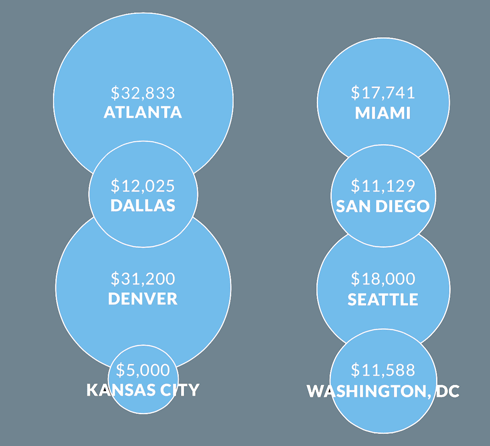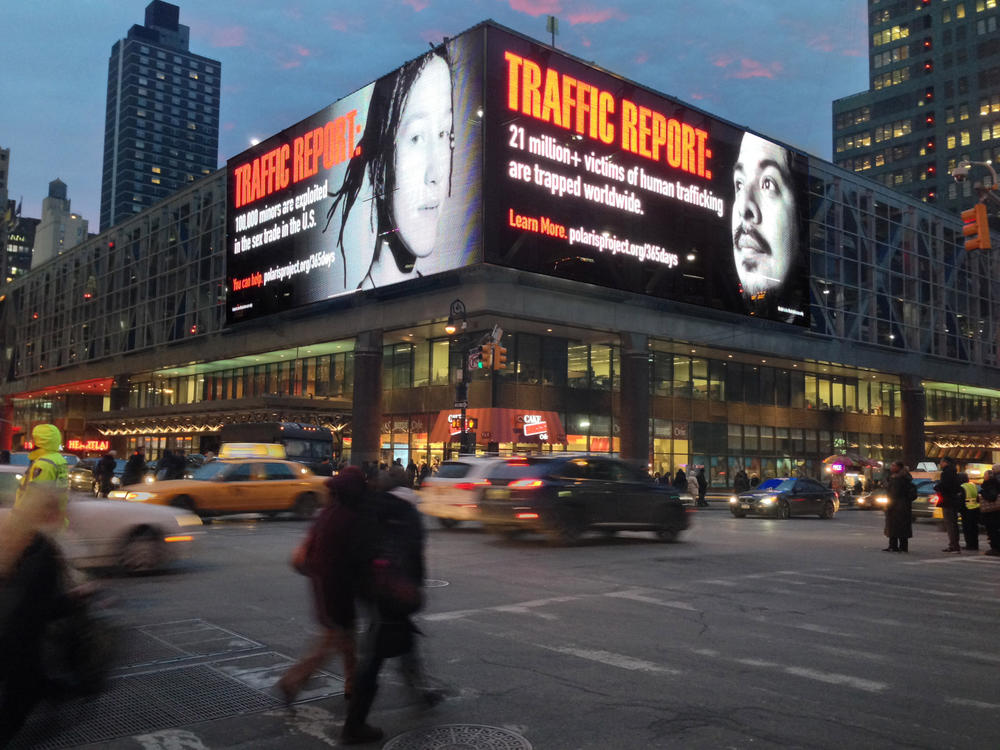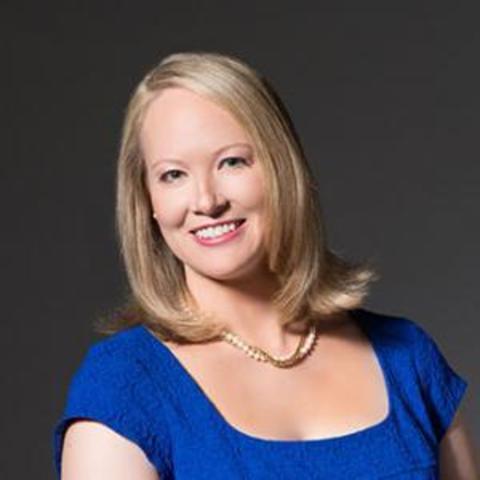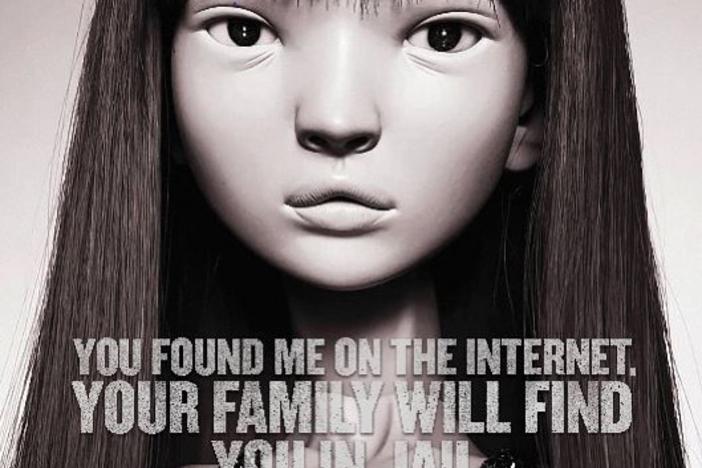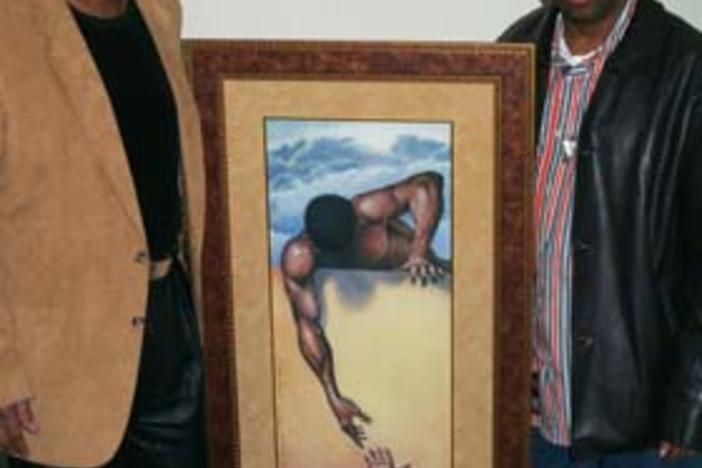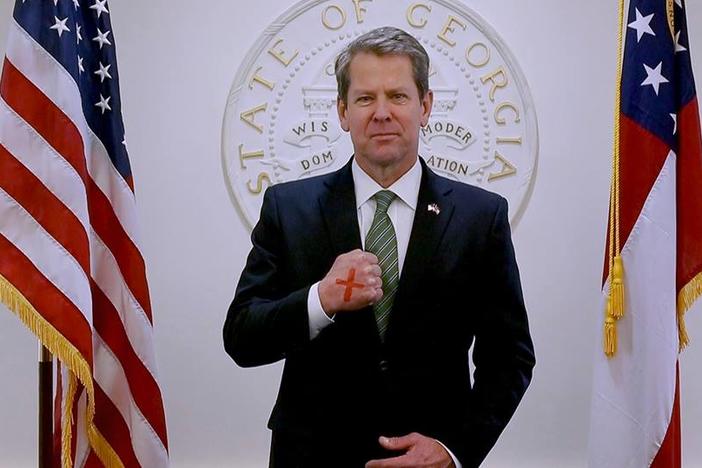Section Branding
Header Content
Will The Super Bowl Bring More Sex Trafficking To Atlanta?
Primary Content
Atlanta consistently ranks high among sex trafficking hubs in America.
Sex trafficking takes many forms, from children being advertised online to residential brothels to undocumented women being forced to work at a storefront “spa” under threat of being reported to immigration authorities.
An Urban Institute report found between 2005-2011 pimps in Atlanta lead the nation in average cash earnings each week – $32,833.
Victims advocates say when the Super Bowl comes to town in 2019, these numbers will spike because of the hordes of football fans.
According to the federal Trafficking Victims Protection Act (TVPA) severe forms of human trafficking are legally defined as:
Sex trafficking is the recruitment, harboring, transportation, provision, or obtaining of a person for the purposes of a commercial sex act, in which the commercial sex act is induced by force, fraud, or coercion, or in which the person induced to perform such an act has not attained 18 years of age, (22 USC § 7102).
Labor trafficking is the recruitment, harboring, transportation, provision, or obtaining of a person for labor or services, through the use of force, fraud, or coercion for the purposes of subjection to involuntary servitude, peonage, debt bondage, or slavery, (22 USC § 7102).
Deborah Richardson is Executive Vice President of the National Center for Civil and Human Rights in Atlanta. She recently published an op-ed in the Saporta Report calling for leaders to make Atlanta a “no human trafficking” zone ahead of the Super Bowl.
During our interview Richardson addressed how Atlanta’s elected leaders, business community, non-profits and law enforcement officials can partner to prevent sex trafficking in particular.
On what sex trafficking currently looks like in Atlanta
Certainly, domestic child sex trafficking is a huge issue in Atlanta. Young girls are generally advertised on online ad sites such as backpage.com. We have seen evidence that when persons come to Atlanta for conventions or sporting events, backpage is a great resource for them to go online and order a girl that will be waiting for them at their hotel.
On why Atlanta is already a hub for sex trafficking
We have all of the ingredients. We have the world's largest airport. It is very easy for people to come in from anywhere in the world, have a two or three hour layover and meet their connecting flight. We have lots of convention business. Unlike places like New York City, Chicago, or places on beaches like Miami, there are no other kinds of prominent entertainment available. So sex trafficking is on the list of things to do. The third thing is the sporting events, the fact that we have the major sports teams here, and we also host big events such as the Super Bowl and others.
On why Atlanta leads need to create a “No Human Trafficking Zone” ahead of the 2019 Super Bowl
There are several reasons. One is because Atlanta led the way of discovering and alerting the country around domestic sex trafficking. We were one of the first cities to step up in the early 2000's and say this is something that happens in your own backyard.
https://www.youtube.com/watch?v=fRsbo6g21hU
The second one is that we have a city that stands for civil rights, human rights, we are known for that all over the world. As a result of that, we have a lot of stakeholders who are investing in making sure that Atlanta lives up to its promise and its reputation. We have very active stakeholders here. All of our local governments have put in place protocols and laws to help support the ending of sex trafficking. Our state legislature has been very progressive in terms of legislation about sex trafficking.
I believe that we can come to a shared agreement and then figure out the role that each one of us will play in contributing towards this goal.
The Polaris Project partnered with Clear Channel on a public awareness campaign ahead of the 2014 Super Bowl at Giants Stadium in New Jersey. On why it’s a successful precedent.
One thing is awareness. Another thing was a public relations advertising campaign where there were billboards, PSA's, information in hotels and at the airports. We had great media there but we only had the non-profit Polaris working towards this. Here, we have the opportunity of having the business community, the NFL itself, the education community, law enforcement, all of them can play a role so it’s a much bigger footprint.
On what everyday Georgians do to combat human trafficking
Something very tangible that can be done is on the ballot in November is The Safe Harbor Bill which provides funding for victims of sex trafficking. That has always been an issue that there's not enough funding to treat these young women and men and bring them back to have whole and productive lives.
Secondary Content
Bottom Content


